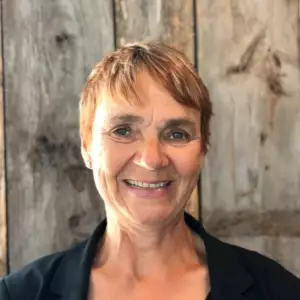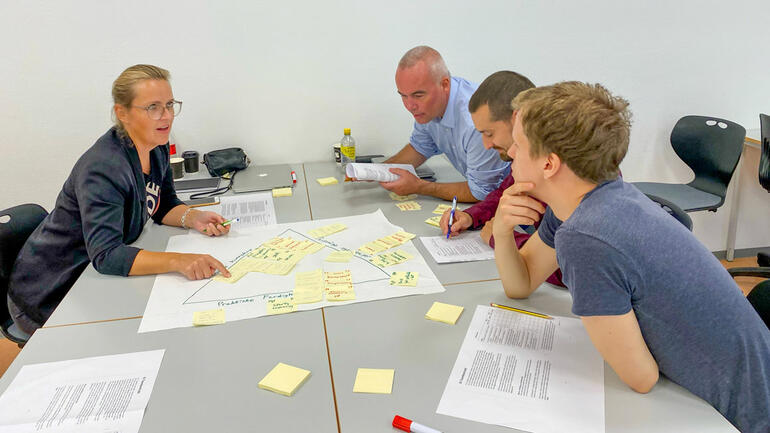The name of the new course at the University of South-Eastern Norway (USN) really says everything about it. Students are put together in groups. Each group connects with a local business or organisation from society and working life in need of innovation. The aim is to find new and more sustainable solutions.
The businesses have initially defined issues or challenges they need help with, and closely follow the work of the group together with USN academic supervisors.
“The teaching of Innovation in Teams differed from other subjects in that it was intense and challenging but also a lot of fun,” say students Vibeke Ravndal and Øystein Kjelling.
They recommend the course to anyone who likes to challenge themselves, wants to work on a specific issue, and at the same time learn something new.
“Affected my motivation"
Ravndal and Kjelling worked on this problem from Waste Norway:
“Too much waste that could have been recycled ends up in the residual waste! How can we help citizens gain maximum value from their waste? We currently have a waste system which is based on structures and schemes that everyone has to adapt to. Our vision is for us to develop customised, flexible solutions!”
“Working with people from trade and industry on a concrete project did something to my motivation that I haven't experienced through lectures in other subjects,”says Kjelling, who is taking the last semester of a Bachelor's degree in IT and information systems.
Vibeke Ravndal also relates that Innovation in Teams is different from the other courses.
"There are fewer students, smaller groups and you have to participate in a very different way than when you're sitting in a lecture hall and mostly listening. A nice change from a student’s everyday life consisting mainly of theory and lectures,” she says.
Ravndal is taking a Bachelor of Sociology in addition to a full-time job, and has her bachelor's thesis left to do before she finishes her course.
"I experienced the introduction to Design Thinking, and the fact that I have been involved in an innovation project using this method, as particularly informative. This is something I've already introduced into my working life,” she says.
Satisfied company
Senior Adviser Nancy A. Strand in Waste Norway is impressed  by what the students have achieved.
by what the students have achieved.
"I believe that the group’s idea of a simple scan of what we should sort according to source material, and the possibility of getting a reward when sorting correctly, has a future. A similar idea was launched from a waste company in Austria not much later. So here students have worked together to find an innovative solution,” Strand says.
She thinks it was especially gratifying that the group won their pitch when everyone had to present their results in Porsgrunn during the final.
“The group chose a role-playing presentation that highlighted both the problem and the solution in a very good way,” Strand says.
Senior Adviser Nancy A. Strand in Waste Norway says the students' reflections helped shed light on the challenge they experienced. She believes the aim of the company was achieved.
"We've also implemented an internal innovation process both before and after the course was completed. There we were able to use the innovation methodology we've learned from USN. This spring, one of the IT students is writing a bachelor's thesis for us,” says Strand.
Trained in innovative thinking
“This is a new model for collaboration between students, working life and academic staff,” says Project Manager Thomas Christian Espenes.
Participating companies are given an Innovation Unit consisting of innovative students over a defined period. Students receive academic supervision and follow-up from USN.
“Students are trained to think innovatively around sustainable solutions for working life. They get to work on relevant issues in a way that develops skills and competencies that are important to their working life while taking the course,” Espenes says.
